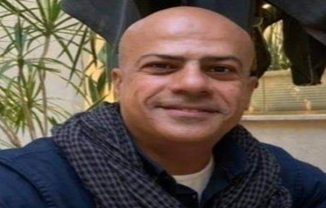
Italian and Egyptian investigators said Friday that two days of meetings in Rome on the case of Giulio Regeni, an Italian student who was tortured and murdered in Cairo this year, had concluded with a joint commitment to getting to the bottom of the case.
Cairo police investigated Giulio Regeni for three days in January before he disappeared later in the month, Egypt’s prosecutor general said in a joint statement on Friday, as reported by ANSA, the Italian News Agency.
It said that the investigation started after the head of an independent union of street traders filed a petition. It said the probe lasted three days and “did not uncover any activity of interest for national security and, therefore, the investigations were stopped”.
Finally, the joint statement between Cairo and Italy officials said the meeting concluded “with a renewed commitment by both offices to continue to exchange documents and information to reach the common aim of establishing the truth about the death of Giulio Regeni”. The third such meeting on the case “served to provide a fruitful comparison on the elements so far gathered by the two offices,” the statement said.
In particular, the Egyptian prosecutor-general illustrated and handed over the ample, complete and in-depth report on an examination of cellphone traffic covering the areas of Regeni’s disappearance on January 25 till his body was found on February 3, said ANSA.
In fact, this is the first time the Egypt confesses officially that Giulio Regeni was held on investigations by Cairo police before his disappearance.
In fact, the Egyptian authorities have repeatedly denied its security forces were behind the torture and murder of Regeni. I
In the same context, the Egyptian authorities have narrated several stories about the Italian student murder. They previously claimed he was killed in a traffic accident. Then, they claimed he was kidnapped and murdered by a gang specialized in killing foreigners. Four suspected men were shot dead by the Egyptian security forces.
However, many evidence admitted that the Italian Ph.D. student was held by the Egyptian security forces before his disappearance.
Last month,a special report was released by Reuters revealed that the Italian Ph.D. student Giulio Regeni made a Skype call from his Cairo flat to an academic in Germany, ten days before he vanished, and he sounded anxious.
Georgeta Auktor, a researcher at the German Development Institute in Bonn, where Regeni had spent a few weeks in 2015, said, “We did not talk very much as it was expected that we will catch up at some point later.”
“He said he feels he needs to be careful where he goes in the city and whom he meets.” However, they did not speak again, reported Reuters. It seems that Regeni felt that he was followed by the Egyptian security forces.
In fact, this Skype call matches what has been revealed a week ago when some Egyptian sources stated that the mobile call logs analysis in Egypt has proved that Regeni was followed by the Egyptian security forces the day he disappeared. There was no official comment from Egypt regarding this information.
A Private Italian Channel “la7” has reported also that anonymous sources at the Egyptian capital said that by analyzing nine mobile call logs at Regeni’s location, it was showed that “Regeni was followed from five Egyptian police officers on the day of his disappearance on 25 January 2016.”
The analysis showed that the five police officers, “were moving side by side with Regeni when he took the underground (the metro) of al-Bohous, west Cairo at almost 8 pm before he disappeared.”
The Italian Channel’s report said that the Egypt’s general prosecution, “should call the five security officers, who were following Regeni the day he disappeared, for investigations to reach the truth.”
In the same context, there is other evidence that ensures the same information that Regeni was targeted by the Egyptian security forces who denied seeing Regeni before his death.
In April, Reuters published an exclusive report after interviewing intelligence and security sources who told the news agency that the police had arrested Regeni outside a Cairo metro station on Jan. 25 and then transferred him to a compound run by Homeland Security. The government and security services have always denied he was ever in custody.
It remains unclear who killed Regeni or why, “But piecing together his activity in the months leading up to his death, it is apparent that two factors put the student at risk: his passionate interest in political and economic issues and his belief that Egypt needed change.”
Regeni raised the suspicions of Egypt’s security services because he met unionists and was researching politically sensitive subjects, “as reported by Reuters based on the testimony of three Egyptian security sources.
One of the sources said, “Homeland Security had monitored Regeni with a number of opposition leaders and labor unions. He attended several meetings.”
A second security source said: “He is a foreigner and does not work in the media … and this is what made Homeland Security follow and monitor him.”
In addition, a third security source said that Regeni’s meetings were suspicious because they took place at “a time in which many nations were intervening in what is happening in Egypt.” He continued that this behavior has raised the possibility that the Italian young man was gathering information for a foreign nation.
Regeni has been searching on Egypt’s independent unions for his doctoral thesis. He was also interested in alternatives to the long-standing domination by the state and the military of Egypt’s economy. Therefore, his research study should have alarmed Egypt’s homeland security which returned more suspicious and powerful after the military coup led by al-Sisi in 2013.
Regeni’s research study is sensitive because the Egyptian military’s grip on the economy is a subject rarely issued about in a country that has been ruled almost by military men since the overthrow of King Farouk in 1952, reported Reuters.
In addition, the independent labor unions have played a major role in the industrial unrest and strikes that paved the road for the 2011 uprising that toppled Mubarak’s regime.
Academic Auktor, who is also an associate fellow at University Erlangen-Nuremberg Institute of Economics, was working with Regeni on a paper called “Developmental State in the 21st Century – Calling for a New Social Contract.” She said the Italian longed to “see the fruits of 2011. He thought a more inclusive state was necessary. He believed that the involvement of more social groups would be beneficial.”
But hopes of 2011 revolution have vanished after the military coup led by al-Sisi against Mohamed Morsi, the first democratically elected president of Egypt.
Al- Sisi, the former head of the military intelligence and Defense minister – has launched a massive crackdown against freedom of speech, expression, and political participation. The political opposition was imprisoned, protests were banned, and active laborers were arrested.
In fact, since al-Sisi military coup -independent trade unions that have flourished and emerged after 2011 Arab Spring uprising- have been fragmented.
Human Rights Watch, has criticized Sisi’s government, saying it had stopped “dealing with the de-facto independent trade unions, which has led labor activists to fear that labor rights gains since 2011 are facing erosion.
Regeni has disappeared on the fifth anniversary of January Revolution and his body was found on the side of the Cairo-Alexandria highway on February 3 by passengers on a bus that had broken down, according to a police source.
The body showed signs of torture, including cigarette burns and beatings, said Egyptian forensics officials. Regeni’s mother addressed the Italian parliament saying that her son’s injuries were so bad and she identified him only by the tip of his nose.
International newspapers, Egyptian human rights groups and activists say that Regeni’s body carry the signs of the Egyptian security forces, allegations those services and the government have strongly denied.
The relations between Italy and Egypt have deteriorated since Regeni’s murder. Italy has repeatedly expressed its dissent from the Egyptian authorities which have been accused of not cooperating to find those responsible for Regeni’s brutal death. Moreover, Regeni’s mother accused the Egyptian security forces of being responsible for her son’s murder.
In April, Rome recalled its ambassador to Egypt in the light of the unresolved murder of the Italian Ph.D. student. In addition,t he Italian Senate voted to halt supplies to Egypt of spare parts for F16 warplanes in protest against the killing of Italian student Giulio Regeni.
Human rights groups say Regeni is among hundreds of people who have disappeared in Egypt over the last year.
A recent report published by Amnesty International noted an “unprecedented spike” in enforced disappearances in Egypt since early 2015, with security services using them as a means to quash dissent.
Philip Luther, Amnesty’s Middle East and North Africa director, said, “Enforced disappearance has become a key instrument of state policy in Egypt. Anyone who dares to speak out is at risk.”
UK-based human rights group said abuses had surged since the military coup that ousted Egypt’s first democratically elected President Mohamed Morsi in 2013 and led to a massive crackdown on Islamist and secular opposition.



